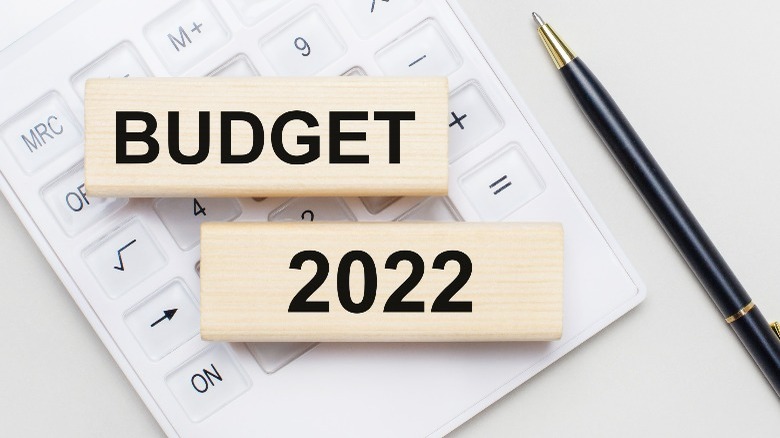What Can You Do To Increase Your Homebuying Purchasing Power
In 2021, homebuyers had an up-close look at the adrenalin-pumping side of trying to buy a home in a competitive housing market where houses have multiple offers above list price and sell quickly, per Fortune. Housing prices have soared because buyer demand is higher than the number of houses available. You may have been competing against buyers who can pay more, make a higher downpayment, and are willing to waive inspections or mortgage contingencies. On top of that, you may have been pre-approved for a mortgage in 2021 only to find out that rising mortgage rates mean you can no longer afford the payments on the same-priced houses you had been considering, according to The Mortgage Reports. It can get extremely discouraging. The good news is that real estate is cyclical because it's based on supply and demand, so the situation will change.
Here are three things you can do to increase your buying power. One is to improve your debt-to-income ratio (DTI), another is to create a budget and track your spending, and a third is to check your credit score. Your DTI basically compares how much you owe each month to how much you earn before taxes and other deductions. When you apply for a mortgage, a lender will evaluate how much money they are willing to lend you. If you have too much debt or not enough income, a mortgage lender will see you as a higher risk and may deny your loan.
Improve your debt-to-income ratio
Different lenders use different ratios to determine what they consider a good risk. For a conventional loan, a lender prefers to see a ratio of less than 36%, with no more than 28% of that debt going towards paying your mortgage, per Investopedia. However, Federal Housing Administration (FHA) loans, which are backed by the government, have less restrictive qualifications related to DTI, credit score, and the amount of your downpayment.
For example, with a conventional loan, if your gross income (before taxes and other deductions) is $4,000 per month. The maximum amount for monthly mortgage-related payments at 28% would be $1,120 ($4,000 x 0.28 = $1,120) with a total amount of monthly debt not exceeding 36%, or $1,440. With an FHA loan and the same gross income, the maximum amount of DTI is 43%, which is $1,720 per month, and 31% or $1,240 of that for your mortgage-related expenses. Talk to lenders to see what lending programs are available to you.
Pay down debts
Keep in mind that the total amount any lender may be willing to lend may be more than you want to spend each month. Homeownership comes with many additional and sometimes unexpected expenses. Borrowing at the very maximum end of your range may strain other finances. It's never an easy task to stretch limited financial resources to cover multiple financial goals, especially in a tough economy.
To improve your DTI, look at ways to pay off or reduce your debts. According to Investopedia, you may be able to address existing debt using one of two common methods: debt snowball and debt avalanche. Clearly, these terms were not created in the South. Debt snowball means you pay off your smallest debt first, no matter what the interest rate, while making minimum payments on other debts. A debt avalanche is when you pay off your debt with the highest interest rate first while paying minimums on the others, then the debt with the next highest rate, and so on. Debt consolidation is the third method that combines multiple debts into a single new one, ideally at a lower interest rate, making payments more manageable or the payoff period shorter. This can be accomplished by using balance transfer cards or a personal loan.
Create a budget
Create a budget and write down your spending. It's surprising how expenses that are not written down can be easily forgotten. For example, paying for multiple subscription-based streaming services like HBO and Netflix or eating out multiple times per week can quickly slip your mind. One free app that can help with this is Mint, per Forbes, which lets you track spending and savings and set and track your budget goals. When you are looking ahead to applying for a mortgage, consider whether you can hold off on major purchases, like a car. Saving money towards a larger down payment on a home may mean you won't need to pay for mortgage insurance and may be able to borrow less money.
Finally, check your credit score to see whether there are any errors and what adjustments you can make. Late or missing bill payments can damage your credit score, per Investopedia. Talk with your creditors to see what financial plans they offer that may help. Under federal law, you can obtain a free credit report annually from each of the three national credit-reporting companies at annualcreditreport.com, per USA.gov, an official website of the U.S. government.
With mortgage rates at 5% and expected to climb in 2022 and housing prices still increasing, this may be the best year to focus on increasing your buying power. When the real estate market eases up, you'll be more knowledgeable about your finances and in a stronger position to buy a home.



